

CAMHS
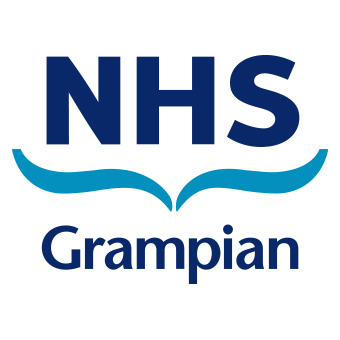
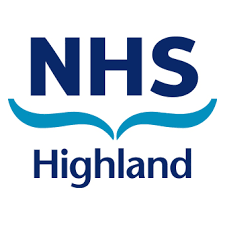
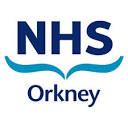
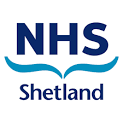
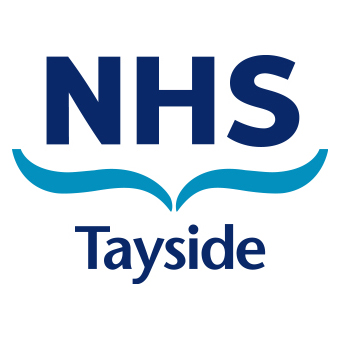
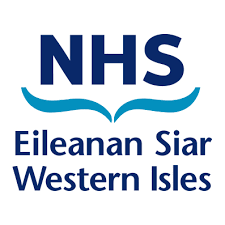
Dudhope Young Peoples Unit & Tier 4 Network
North Region CAMHS Tier 4 Network
Following a significant and growing political interest in the provision of CAMHS in NHS Scotland, additional funding was provided by the Scottish Government to improve local Tier 3 and 4 service access. Previously within the North Region, there was only one dedicated Tier 4 inpatient service based within NHS Tayside (Dundee) which comprised of a 6 bedded inpatient unit with day services located in Aberdeen and an intensive outreach / home based treatment team operating in Tayside.
All local CAMHS Tier 3 specialist outpatient services (multidisciplinary specialist teams) encountered young people whose needs escalated beyond that which they were structured or resourced to safely manage. When the need for access to inpatient care was identified, there was a significant waiting time or alternative admission to Adult Mental Health facilities, paediatric environments or the private sector. This posed particular challenges in ensuring the delivery of age-appropriate care by staff with the requisite expertise for a group of extremely vulnerable young people. A North Region Mental Health Needs Assessment was therefore undertaken in 2010, coinciding with a significant and growing political interest in the provision of CAMHS in Scotland, which indicated that there was a need to develop Tier 4 services for young people with severe and complex mental health disorders in the North of Scotland. The Needs Assessment recommended that:
- The literature was clear that there was a need for a mixed economy of investment across a spectrum of care that included both inpatient and community based Tier 4 services
- Access to inpatient psychiatric beds was a prerequisite of a comprehensive child and adolescent mental health service
Following completion of the Needs Assessment in 2010, a new 12 bedded psychiatric young people’s inpatient unit was built and opened in April 2015 in Dundee to replace the previous NHS Tayside 6 bedded unit. The development of an obligate network resulted in a fundamental change to the way CAMHS inpatient clinical services are provided within the North of Scotland.
The Needs Assessment concluded and agreed on the development of a regional inpatient bed capacity in the North of Scotland consisting of 12 beds. This was appropriate on the basis of investment by all North of Scotland Boards in local / community based Tier 4 service delivery, with the development of an integrated network model of delivery equating to an investment in 16 inpatient beds as designated by the Scottish Government. The development would ensure a more equitable and formalised approach to ensuring access to required expert care. This model would benefit the young people across the North of Scotland who required intensive CAMHS care. It would also benefit the investing NHS Boards through service and governance improvements which would have otherwise presented increased challenges. Early implementation of the network model involved the development and appointment of a Clinical Lead, Regional Network Manager, Regional Consultant Psychiatrist, Information Officer, Lead Nurse and Network Liaison Nurses based within each of the investing mainland Health Boards.
The network supports the most unwell young people, in terms of mental ill-health, in the North of Scotland population, at times, in the most remote and rural areas. These young people will be suffering from severe, complex and often enduring mental ill-health including schizophrenia, early onset psychoses, severe clinical depression, those who persistently self harm, significant mental health co-morbidities including autism and those with severe and protracted eating disorders. These young people have significant long-term morbidity and mortality problems which can be reduced by early, vigorous and age appropriate treatment of their illness.
The obligate network operates across five of the constituent NHS Health Board areas that contribute to the North Region Health and Care Collaboration; NHS Grampian, NHS Highland, NHS Orkney, NHS Shetland and NHS Tayside. The obligate network model operates on the expectation that formal arrangements are already in place within, and between, North Region NHS Boards and their partners to promote access to high quality tier 4 CAMHS care. To support this, an Integrated Care Pathway (ICP), which is neither condition nor setting specific, was implemented. The ICP feeds into and informs the regional governance arrangements and assurances which are central to the network. Through monitoring planned care with care actually provided or received, and examining the variances from the pathway that arise, there is a sound basis for performance monitoring and driving up equity, consistency and quality. The network comprises of three elements:
- Regional tier 4 network resources
- Local tier 4 services
- Access to the regional inpatient unit
The key objectives of the tier 4 Network are that young people with tier 4 mental health needs receive: appropriate and timely care that is equitable across health boards, as local as possible, and as specialist as necessary; continuity of care through step up step and down care; peer support and training; governance and clinical pathway development in collaboration, as part of a network model. This is achieved through the establishment of a network of health boards supported by the regional network team, including the inpatient unit. More specifically:
- Appropriate and timely care for adolescents in the North of Scotland Region with severe and / or complex mental health problems and illness (Tier 4)
- Improved patient safety, better patient outcomes and person centred care for young people with tier 4 needs
- Local access to an enhanced level of specialist treatment and care when required supported by network staff trained and skilled to work with this group of patients across a variety of settings. The aim is to provide the required level of care locally but to have easy and rapid access to inpatient care when appropriate
- Young people with severe mental illness tier 4 have equitable response to their needs wherever they live, and irrespective of any additional physical disabilities
- All young people with severe mental illness receive care consistent with recommended standards
- Routine availability of family facilities and support during any periods of tier 4 care
- Successful transitions to lower level or more local care when clinically appropriate
- Improved joint working with Local Authorities and third sector partners
- Professional access to consultation with shared expertise and good practice across the North of Scotland region through the establishment of a Specialist CAMHS Network
- Peer support, training and supervision for specialist CAMHS colleagues across the North of Scotland region working with young people with tier 4 needs
NHS Scotland CAMHS Model
Child and Adolescent Mental Health Services (CAMHS) within NHS Scotland are generally centred on a “tiered” model which provides a description of a level of disability and need corresponding to the level of required service. In contrast with Tier 1 being the lowest level of need, Tier 4 services are concerned with the highest and most intense levels of need. Tier 4 CAMHS are required to meet the needs of young people with the most complex, severe or persistent mental health problems. At times young people will be in contact with education and social work services with very high levels of mental health need and require a level of specialist input that can only be met through what has been defined as a Tier 4 level of service where age appropriate care is available in a general psychiatric inpatient unit, paediatric or adult mental health bed or through intensive community services.
Tier 4 mental health needs can be defined as young people with mental health difficulties with one or more of:
- Too high risk to attempt to treat with usual outpatient resources e.g. suicidal, psychotic with disorganisation, self harm or violent behaviour
- Needs intensive assessment or treatment (equivalent or more than weekly outpatient contact and more than one CAMHS professional)
- Not responding to usual outpatient treatment which may need reassessment or treatment or more intensive input
The definition of mental health difficulties provided as relevant to Tier 4 can be related to any one or more psychiatric disorder defined by internationally recognised diagnostic criteria and particularly the combination of illness with co-morbidity and illness with a number of confounding factors that may affect the complexity of presentation and associated dysfunction. Factors leading to referral to Tier 4 CAMHS are not only based on severity and complexity, but also lack of treatment response; unusual clinical features, breakdown in therapeutic relationships, unavailability of local treatment options, increased vulnerability due to personal circumstances (i.e. in Local Authority care, youth justice system) and patient choice.
Network & Service Team
North Region CAMHS Clinical Lead
The North Region CAMHS Clinical Lead provides leadership and expert input into clinical aspects of the obligate Tier 4 CAMHS network and the regional adolescent inpatient unit. The position also represents North Scotland clinical colleagues at a strategic level. This includes appropriate working groups on clinical models of care and agreed operational protocols for services. Leading the continued development of the regional network is a key objective of this position whilst representing the network at a national and local level.
Dr Kandarp Joshi is currently the North Region’s CAMHS Clinical Lead, taking up his position from April 2020. Dr Joshi has also worked as Child and Adolescent Consultant Psychiatrists for NHS Grampian since January 2010 and also holds the position of Medical lead for NHSG CAMHS. Prior to taking up role of Medical lead he also provided Community CAMHS visiting service for NHS Orkney CAMHS. His special clinical interests are centred on Eating disorder, Psychosis, neuro-developmental disorders, and their interphase with Attachment Disorders and developmental trauma.
Dr Joshi gained MD in psychiatry from South Gujarat University prior to coming to UK and retrain to be a Child and Adolescent psychiatry (core training in North of Wales and Higher Training in North of Scotland). He is also trained to deliver Family based treatment, an Accredited IPT practitioner, a Systemic and Family therapy Practitioner. He was Principal investigator for a drug company sponsored multicentre international trial of Lurasidone for Schizophrenia at Aberdeen site and has published on Eating disorders.
Dr Joshi has a passion for service development and is part of team leading transformational change in CAMHS at NHSG. He enjoys providing formative and supportive space to colleagues in his role as a Secondary care Appraiser and a Mentor for new consultant psychiatrists. He is a Recognised Trainer (ROT) for Clinical and Educational Supervisor for postgraduate psychiatric trainees and undergraduate medical training with the University of Aberdeen Medical School (Honorary Senior Lecturer). He also currently Chair of Psychiatry Medical Advisory Committee for NHSG and provides expert advice to Scottish Medical Consortium. He was awarded Fellowship by Royal College of Psychiatrists in 2019.
Regional Consultant Psychiatrist
The Regional Consultant Psychiatrist works within both in-patient and out-patient settings, supporting the delivery of an out-patient obligate network across the North Region. The Regional Consultant Psychiatrist is expected to provide leadership in the development of the Tier 4 services whilst supporting the regional network team. This is achieved by providing consultation, supervision and training support, along with the network colleagues, to locally based CAMHS teams. In addition, the post is required to advise colleagues on Tier 4 cases and where necessary provide second opinions.
Dr Joy Olver is currently the Regional Consultant Psychiatrist having taken up position in March 2020. Prior to this she worked as a consultant psychiatrist in NHS Tayside community CAMHS for 16 years. During this time Dr Olver lead on development of a specialist eating disorders service within Tayside community CAMHS where she was the lead psychiatrist for Tayside-side CAMHS eating disorders team for over 6 years. This team were finalists in the Scottish Health Awards under the mental health category for 2017. Dr Olver has served in a number of leadership positions including Clinical Lead for Tayside CAMHS, lead for postgraduate training (Training Programme Director) and lead for clinical governance in CAMHS. She also is a trained appraiser and delivered medical appraisal for a number of years. Dr Olver is a Recognised Trainer for postgraduate training, Clinical and Educational Supervisor for postgraduate psychiatric trainees.
Dr Olver was a founding member and has served as secretary and chair to the national CAMHS eating disorders steering group. As part of this work Dr Olver has lead on organizing and delivering part of the programme of Scottish CAMHS eating disorders conferences. Dr Olver is currently part of the SIGN guidelines group for Eating Disorders which are being revised. Dr Olver is participating in the current cohort (cohort 12) of the Scottish Quality and Safety Fellowship Programme. This is a lead level quality improvement and clinical leadership course managed by NHS Scotland working in partnership with Healthcare Improvement Scotland and NHS Scotland.
North Region CAMHS Tier 4 Lead Nurse / Network Manager
The North Region CAMHS Tier 4 Lead Nurse / Network Manager works closely with the North Region CAMHS Clinical Lead towards the objectives of the Tier 4 CAMHS network. This post specifically provides professional leadership and direction, ensuring the development of successful and local approaches, supporting both network and locally based CAMHS in identifying appropriate strategies for caring for those with tier 4 CAMHS need in a variety of settings. The role has a responsibility for ensuring that services are designed to meet the required national, regional and local policies, guidelines and standards in order to deliver safe and effective services. The role is key to the continued development of communication and networking frameworks to ensure that sound relationships and interfaces are established between multi-disciplinary professionals and multi-agencies within and out-with the network. The role specifically, provides leadership and direction, ensuring the development of successful local and regional approaches. Accountable to the North Region Director of Regional Planning to deliver and report on the achievement of operational regional and strategic objectives, including issues of access and equity.
Mrs Susan Hynes is currently the North Region’s CAMHS Tier 4 Lead Nurse. Susan’s nursing career started in 1988 as a general nursing student before realising that she was more suited to mental health. After completing her course Susan worked in old age psychiatry, adult intensive outreach acute and enduring mental health illness wards before she joined the CAMHS nursing workforce on secondment in 1998 to the Young People’s Unit at Dudhope Terrace, Dundee. Susan returned to a permanent CAMHS position the following year.
In 2004 Susan moved to outpatient CAMHS where she developed experience in systemic work and CBT, during this time Susan completed a certificate in CBT at the University of Dundee. In 2009 Susan moved to a post developing a pilot CAMHS outreach service with a multiagency focus for young people with complex needs.
Seeking a new challenge in 2014, Susan moved to her current Lead Nurse role. This role has encouraged Susan to develop knowledge of the issues affecting the North and build national CAMHS links. Continuing to consider how services can work together is important to Susan which subsequently resulted in Susan completing a MSc in Service Improvement in an Integrated Health and Social Care Environment. The use of data in improving services is key within the lead nurse role. Susan has recently completed the Scottish Improvement Leaders Programme and is using the knowledge gained from the course to improve the patient journey. In 2019 due to a reconfiguration of the Network Manager and YPU Service Manager roles Susan’s role developed into a joint role encompassing the North Region Tier 4 Network Manager and Lead Nurse roles
Region Tier 4 CAMHS Inpatient Service Manager
The North Region CAMHS Inpatient Service Manager is responsible for providing effective and continuing day to day operational management to all staff working within the regional inpatient unit. The role leads and supports the interface between the nursing, allied health, psychological therapies, medical and other staff disciplines to support full integration of the multidisciplinary and multi agency teams. Responsibility is also given to ensure that the clinical contribution to service delivery is of the highest quality and is one that enhances the patient experience through the provision of safe, effective, efficient, timely, equitable and person centred care. The position is operationally responsible to the Children, Women and Families Clinical Care Group Manager within NHS Tayside as part of the regional inpatient unit’s hosting arrangements and is professionally guided by the North Region CAMHS Tier 4 Network leadership team to achieve regional and national objectives.
Rosie Baillie took up this post in October 2019. This was a new career direction for Rosie having previously worked with NHS Education for Scotland (NES) for nine years in quality improvement and training management roles within the medical training directorate. Her most recent post with NES was Senior Training Manager, with responsibility for administrative teams across Scotland providing support to trainee doctors and those providing and delivering medical training across the country. She had particular responsibility for the consolidation and delivery of national training processes, for example, trainee doctors’ annual review, progression and appeals process. She also focussed on staff development and building relationships within the administrative teams. Prior to her time with NES, Rosie had worked in a number of jobs as an archivist/records manager, including as an archivist for the Lothian Health Services Archive.
Rosie is delighted to have become part of a team providing direct health care services to patients, and hopes to provide excellent support to YPU and network staff.
North Region Network Liaison Nurses
The Network Liaison Nurses lead the intensive integrated care pathway (ICP) with overall responsibility for supporting the local teams with planning and transition of young people in and out of Tier 4 CAMHS. Working autonomously as an expert practitioner, the roles ensure that care needs are assessed and programmes of care are developed, implemented and evaluated in partnership with patients, families and local teams. A key requirement of the role is providing specialist advice to healthcare professionals, other agencies, carers, relatives and children and young people. Accountable to the Network Manager and Lead Nurse the positions provide professional leadership and direction, ensuring that sound relationships and interfaces are established between multi-disciplinary professionals and multi-agencies within and out-with the obligate network, taking account of local CAMHS, their partner agencies.
Network Liaison Nurse (Grampian, Shetland & Orkney)
Mrs Lisa Malcolmson is currently the Network Liaison Nurse for NHS Grampian, NHS Orkney and NHS Shetland. Lisa completed her nursing training in Grampian in 2001 with her first post being in Adult Mental Health services in Glasgow, before moving over to Low Secure Forensic services. Having spent a number of years there Lisa decided to relocate back to Grampian continuing her career in Forensic Mental Health. Within this role Lisa gained varied experience including being part of the development of a Regional Medium Secure Service which would be based in NHS Tayside. She was then later successfully promoted to the position of Senior Charge Nurse.
Lisa started her CAMHS career in 2013 after being successfully appointed as a CAMHS Nurse within the Grampian outpatient service. After completing her Systemic Practitioner training, Lisa worked in the role of Systemic Nurse Practitioner supporting young people and their families. Alongside her time there, Lisa worked with a team to develop Grampians Veterans First Point service and held the position of Team Leader.
Moving into the role of Liaison nurse has provided Lisa an exciting opportunity to continue to use her systemic skills supporting and improving patient transitions from sometimes very remote and rural settings. Lisa is Decider Skills trained and is very passionate about promoting these within Mental Health.
Network Liaison Nurse (Highland)
Mr Jonathan Davies is currently the Network Liaison Nurse for NHS Highland. Since completing nurse training in 1995 Jonathan initially worked for a number of London Mental Health Trusts. This was followed by employment in North Wales, Swindon, Bristol, Lochaber and finally within the North Region CAMHS Tier 4 Network.
During his career, Jonathan has worked within adult acute wards, a mental health emergency clinic, general hospital liaison teams, a nursing home, IPCU, a commissioning team, an assertive outreach team, adult community mental health and now as a liaison nurse. He has also worked for the BBC advising the Casualty and Eastenders productions.
Jonathan has been involved in the development of 3 adult general hospital liaison teams – Mayday (Croydon), Great Western (Swindon) and Frenchay (Bristol). He also commissioned the first adult Primary Care Health Service for Bristol, as well as a number of small projects including the Bristol Book Prescription Scheme and the Bristol University Anorexia Service.
Jonathan has a Masters Degree in Advanced Nursing Practice, a Degree in Geography and has more recently completed the Post Graduate Diploma in CBT with Children. The achievement he is most proud of is working with people with psychosis to facilitate recovery through self acceptance and hope, advocacy and challenge, along with CBT techniques.
Network Liaison Nurse (Tayside)
Ms Amanda Dineen is currently the Network Liaison Nurse for NHS Tayside. Amanda began working for the NHS in 1988, working in various posts within learning disability services. In 2007 Amanda completed her mental health nurse training and gained a staff nurse post within the Young People’s Unit, Dundee following a very positive experience there as a student nurse.
Amanda transferred to the outpatient CAMHS department in 2011 gaining further skills in neurodevelopmental assessment and mental illness whilst working closely with colleagues in the paediatric assessment clinic and partner agencies such as education and social care. It was during this post that she noticed the challenges faced by some young people in this group who did not always experience equitable support tailored to their individual needs. A passion for health inequalities followed.
Moving to the liaison nurse post in 2014 was an exciting opportunity for Amanda to consolidate all of her past experiences and training into one role. Currently Amanda has a new challenge and over the past year has been leading the “Communication at Key Points in Transition” group as part of the Scottish Patient Safety Programme in the regional inpatient unit. This improvement project will have a positive effect on ensuring young people experience the best possible transition into and out of hospital.
Network Social Work Officer
The Social Work Officer acts as a specialist resource to the Tier 4 Network carrying responsibility for cases with high to very high level of need. The role organises the effective provision of services through specific projects, specialist advice, guidance and assessment. The Social Worker Officer also provides a professional service to a range of service users, assesses and makes recommendations and responds appropriately whilst working with a range of partner agencies and services in various settings.
This position is currently vacant.
Information Officer
The Information Officer supports and assists the CAMHS Tier 4 Network Team in providing whole system information and performance management; including activity monitoring and performance / benchmarking together with advice / guidance on the impact on activity of service. Responsibilities include assisting in the development of information and performance management systems and the provision of a professional information support service to the network team. The role has a key function in providing data for performance and improvement and assisting in establishing a robust system for a sustainable data collection and analysis to meet the requirements of the Tier 4 Network.
Wilma MacLeod is currently the Information Manager for CAMHS Tier 4 Network Team. Wilma started her career as a Medical Secretary with Old age psychiatry then subsequently Forensic psychiatry and general adult psychiatry before taking up post with CAMHs outpatient department in December 2008. During this time it was clear that there was requirement for producing data to inform staff and departments of patient journeys, best experiences and outcomes. Wilma saw the opportunity to take up the post of waiting list facilitator within CAMHs outpatient department. This was then combined with taking on the role of Administration Team Leader and later as waiting list co-ordinator for Tayside. At the time of service redesign Wilma continued to develop her knowledge and skills by completing modules of Measurement for Improvement, using Demand, Capacity, Activity, & Queue (DCAQ) and LEAN methods to streamline action recording process, designing and implementing spreadsheets, accelerating efficiency of action tracking
Wilma continues to improve on her skills and knowledge and has recently completed at course in Excel Expert 2016, to enhance information shared with CAMHS Tier 4 Network Team and centralising all relevant data.
Contact Us
North of Scotland Regional Young People’s Regional Inpatient Unit
17 Dudhope Terrace
DUNDEE
DD3 6HH
Tel: 01382 649031
Email: Tay.taynospgcamhs@nhs.scot
